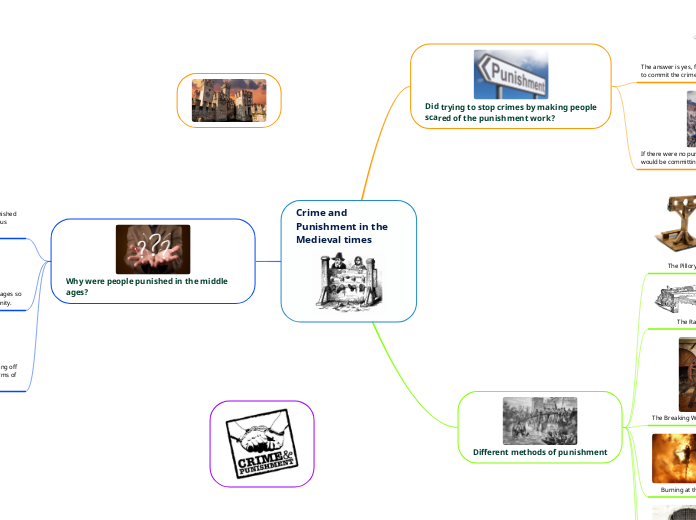Crime and Punishment in the Medieval times

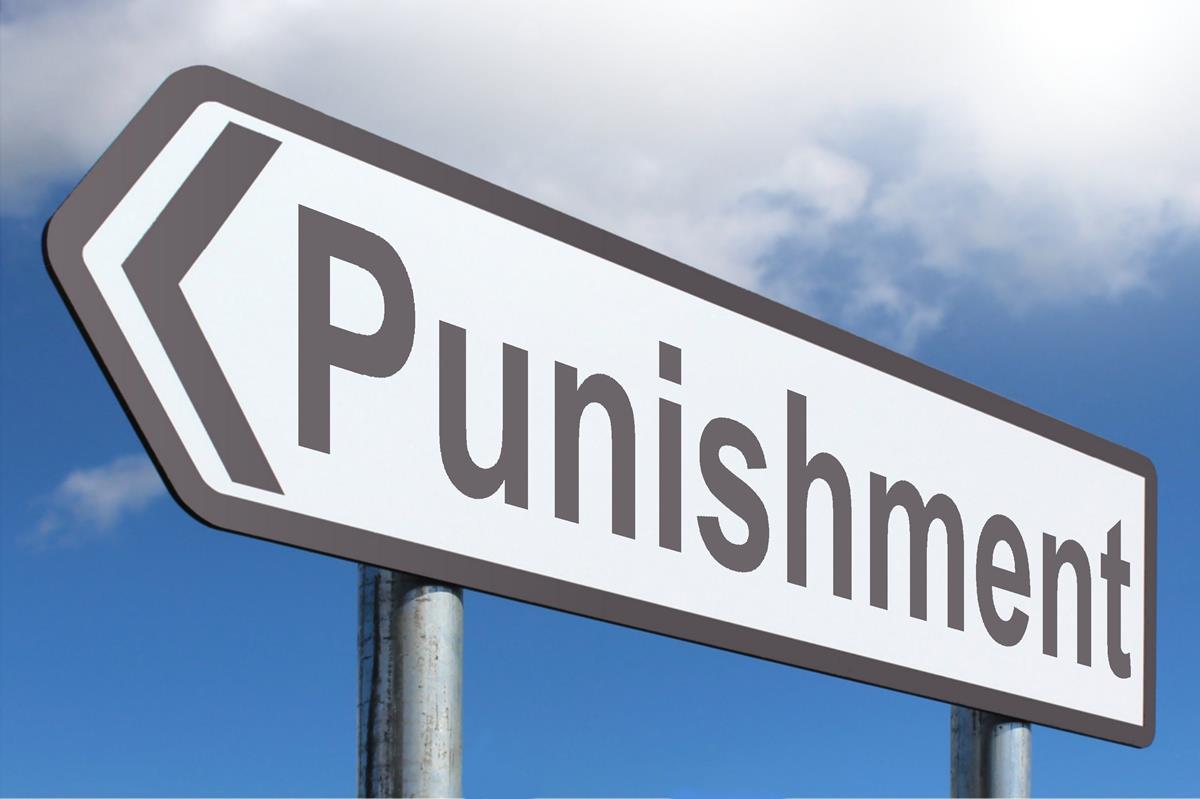
Did trying to stop crimes by making people
scared of the punishment work?

The answer is yes, fear of punishment makes people less likely to commit the crime.

If there were no punishments to committing crimes, people
would be committing crimes everywhere you went

Different methods of punishment
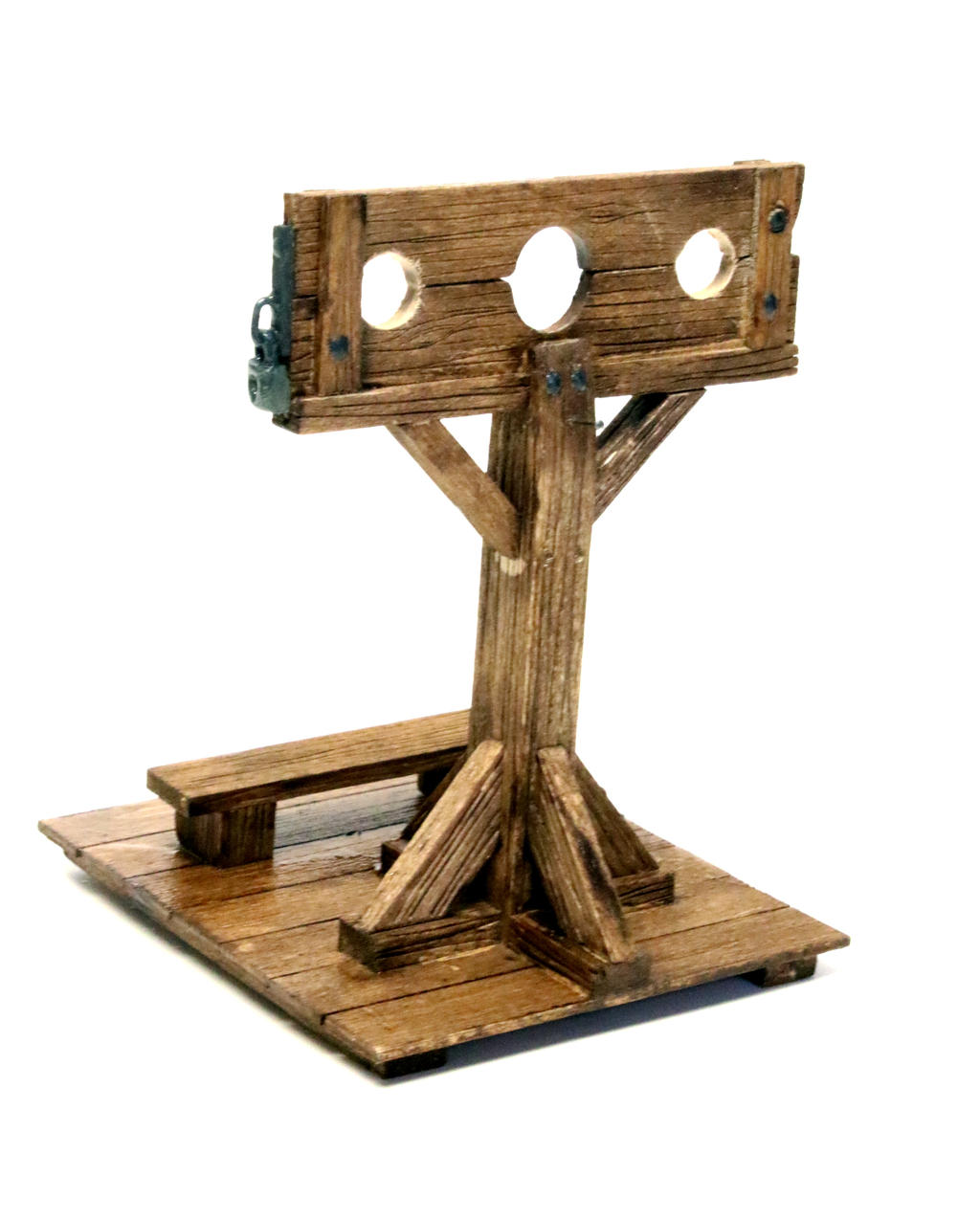
The Pillory
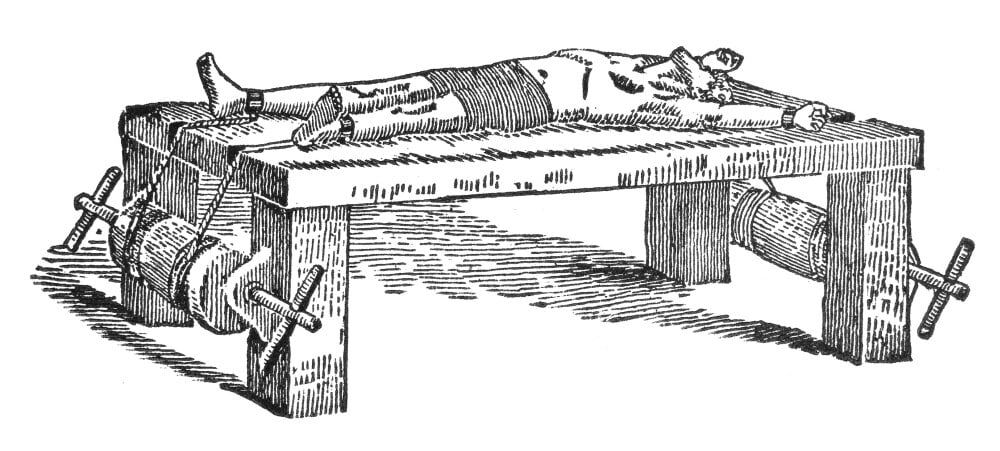
The Rack

The Breaking Wheel (Catherine Wheel)

Burning at the Stake
Iron Chair
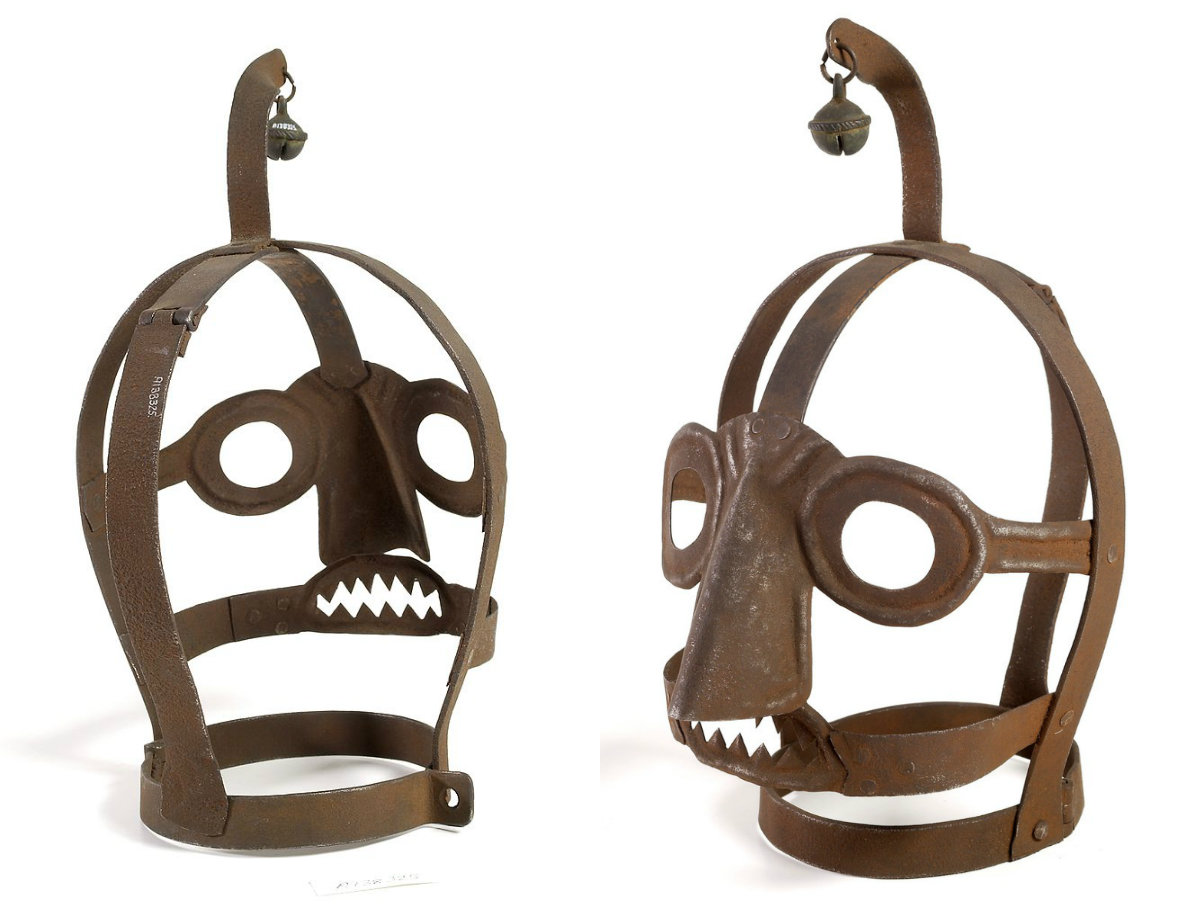
Scold’s Bridle

Why were people punished in the middle ages?

People in the middle ages were sent to court and or punished
for small crimes even like gossiping or stealing, to serious crimes like murder.

There were no police or anything back in the middle ages so
the law enforcement was in the hands of the community.
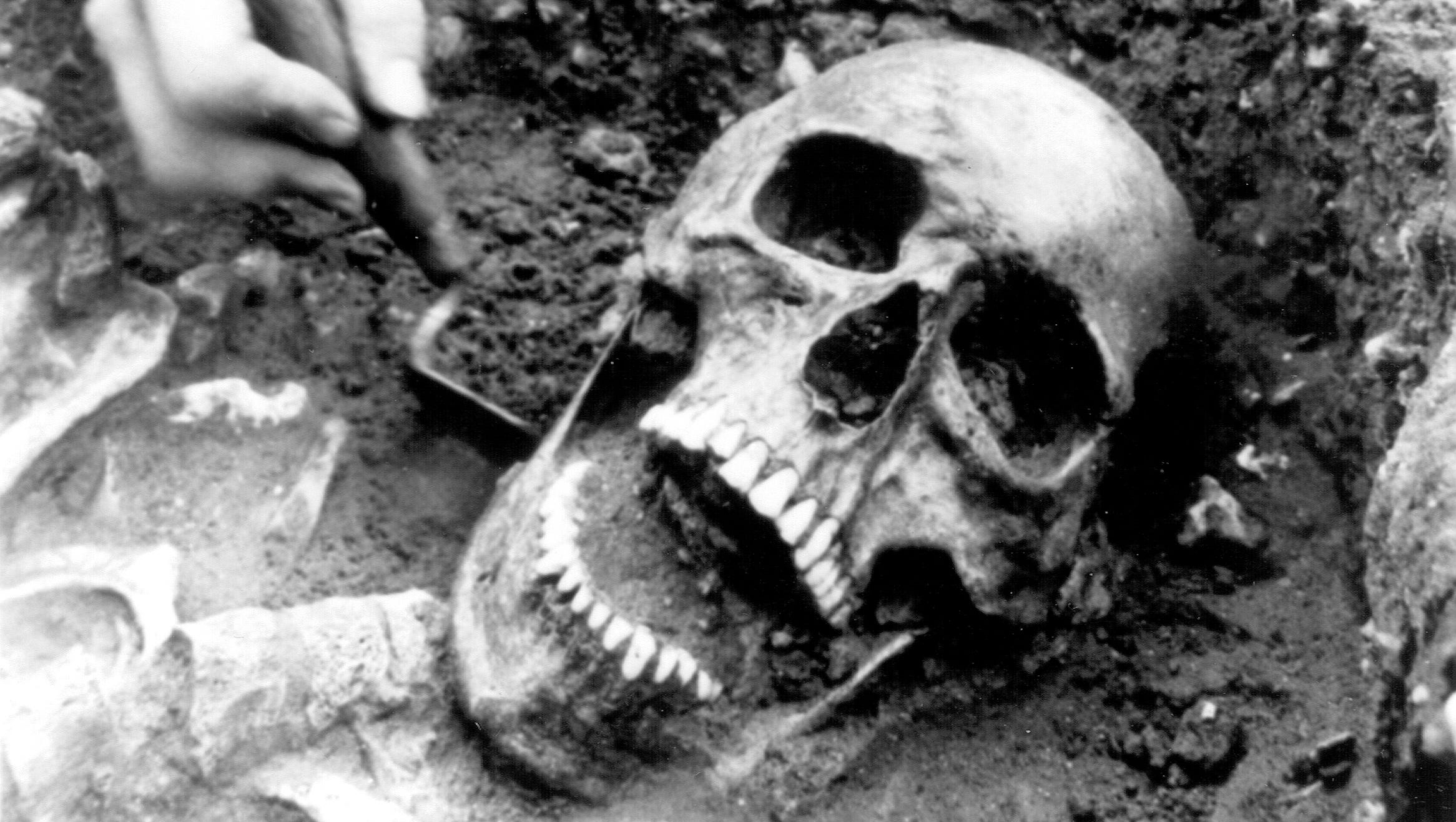
Fines, shaming (being placed in stocks), mutilation (cutting off a part of the body), or death were the most common forms of medieval punishment.


